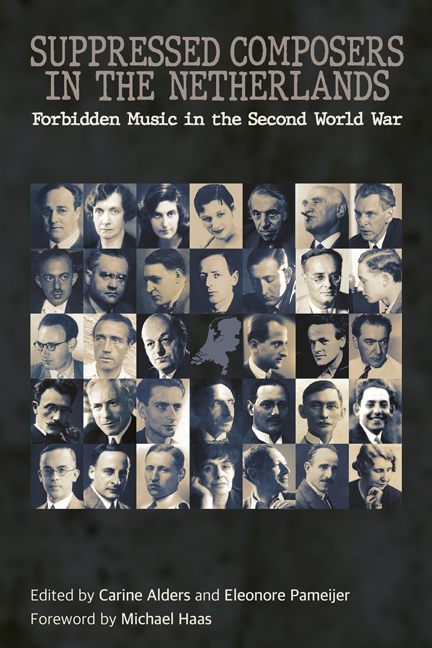1 - Daniël Belinfante
Published online by Cambridge University Press: 09 May 2024
Summary
Daniël Belinfante's manuscripts, donated in 1955 to the Netherlands Music Institute in The Hague by his widow Martha Belinfante-Dekker, remained untouched for decades. His output contains some 100 compositions, consisting of solo concertos, an orchestral suite, string quartets, works for strings and piano, songs and choral works. The neglect is not new: Belinfante's music was rarely performed during his lifetime. After his violent death in Fürstengrube, a sub-camp of Auschwitz, it would take 60 years before his music was rediscovered.
Belinfante was born in the Watergraafsmeer neighbourhood of Amsterdam on 6 March 1893, the third child in a family of ten. He received his first violin lessons from his father, Aron, a diamond worker, and his uncle Sidney, and studied piano with Ary Belinfante, his great-uncle, the director of a music school in the centre of Amsterdam. In 1915 Belinfante continued the family tradition, becoming director of a music school in the Watergraafsmeer, where he also taught piano and composition. Although the building on the corner of the Hogeweg and Pythagorasstraat still exists, it is no longer recognisable as a music school.
In 1923 Belinfante married his student Martha Dekker, and together they continued running the school. In addition to lessons in classical music – primarily given by musicians from the Concertgebouw Orchestra – they launched a jazz curriculum for both amateur and advanced music students. In 1934, long before jazz was introduced at Dutch conservatoires, they established the Eerste Hollandsche Jazzklasse (First Dutch Jazz College). Lessons were offered in jazz piano, trumpet, double-bass, trombone, sousaphone, tuba, banjo, mandolin, clarinet, flute, saxophone and percussion.
Belinfante composed a Concertino for piano and orchestra for his students. This piece was broadcast with two eight-year-old soloists and the VARA Radio Orchestra on 2 June 1937. A caption underneath a photograph of Belinfante as conductor reads: ‘Performance by the school orchestra during the second movement of the piano concertino under the direction of the composer in the Recital Hall – Amsterdam Concertgebouw’. Little is known about other concerts of Belinfante's work; most probably, the performances that did take place were private. Belinfante may have been too insecure about his music to expose it to a wider public. On the other hand, one imagines that a composer needs feedback to define his or her creative position and, if necessary, make adjustments.
- Type
- Chapter
- Information
- Suppressed Composers in the NetherlandsForbidden Music in the Second World War, pp. 29 - 36Publisher: Boydell & BrewerPrint publication year: 2024



